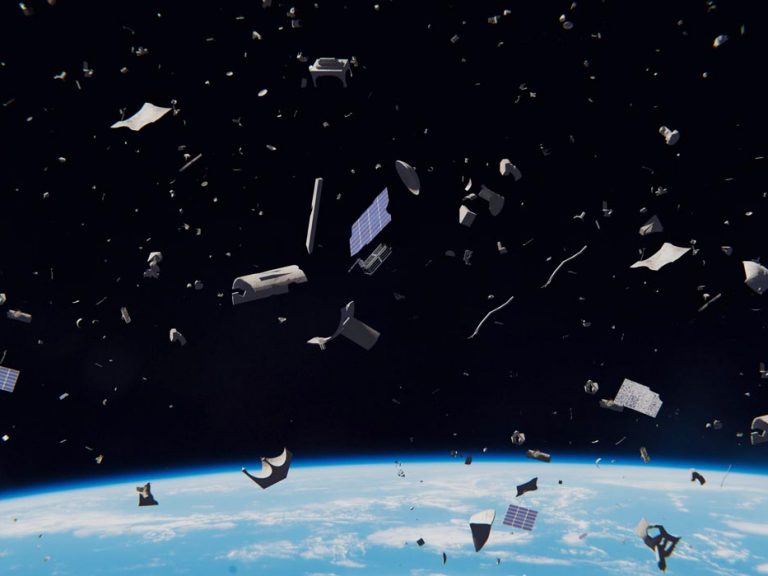What Do the New FCC Space Debris Rules Mean for Operations & Sustainability?
Thank you to everyone who joined us! In case you couldn’t make it, we have the following materials available:
PowerPoint Slides by Dan Oltrogge
Key Comments from the Panelists
Dan Oltrogge: “The FCC R&O does move the needle in a material way should the clauses become the rules.”
“Three long term sustainability space debris mechanisms: avoid predictable collisions (prevention), remove massive debris (remediation), don’t create new debris (mitigation).”
Marlon Sorge: “The issue is that when trying to put together a set of rules you’re trying to do a balancing act, balancing things you’re trying to protect and trying to accomplish.”
“Trying to figure out these rules and what makes sense and how to find a balance is a challenge only compounded by the fact that one must find a way to not just develop the rules within a single country like the US, but also how to get other countries or international organizations to do something similar.”
“One of the intrinsic benefits and problems of space is that it is international by nature.”
John Janka: “Safe space will be at risk if FCC totality of circumstances tests is not employed on a going forward basis, the simple reason is that there are radical changes occurring in the near term in how space is used.”
“Putting non-maneuverable cubesats into densely populated orbits is like putting go-karts on the highway.”
Charity Weeden: “Be a good orbital neighbor, don’t run into things & don’t let things run into you, and get your stuff out of the way when you’re done with it, not in 25 years but ASAP.”
“What the order doesn’t answer is how many dead satellites, especially in the 400-650 zone, is an operator allowed to have in orbit at any one time. The 400-650km range will be a victim of unintended consequences of pushing everything down to the magic 25 year line.”
With space-based services proving critical to life on Earth and thousands of new satellites being planned for orbit, the urgency to maintain a safe and orderly space environment has never been higher.
The Federal Communications Commission has circulated a report & order for new space debris mitigation regulations, and the FCC’s Commissioners are set to vote on this rule on April 23. The rule sets new expectations for maneuverability, information disclosure, cooperation and coordination, and disposal metrics after end of mission, and it has been met with both praise and criticism from the space community.
What are the real implications of these new regulations, and to what extent do they move space operational sustainability forward? Join Astroscale US as we host a virtual conversation with industry and government experts on the significance of the rule as we usher in a new space age.
To help make this experience more useful, we also suggest you read up on the draft rule on the FCC website.
DETAILS
Thursday, April 23 (2:30 pm to 4:00 pm Eastern)
Agenda:
2:30 pm: Opening remarks
2:45 pm: Panel discussion and audience Q&A
MODERATOR
Therese Jones
Satellite Industry Association
PANELISTS
Dan Oltrogge
Center for Space Standards and Innovation, Analytical Graphics, Inc.
Marlon Sorge
Center for Orbital and Reentry Debris Studies, The Aerospace Corporation
Charity Weeden
Astroscale US
John Janka
Viasat

 Visit U.S. Site
Visit U.S. Site




